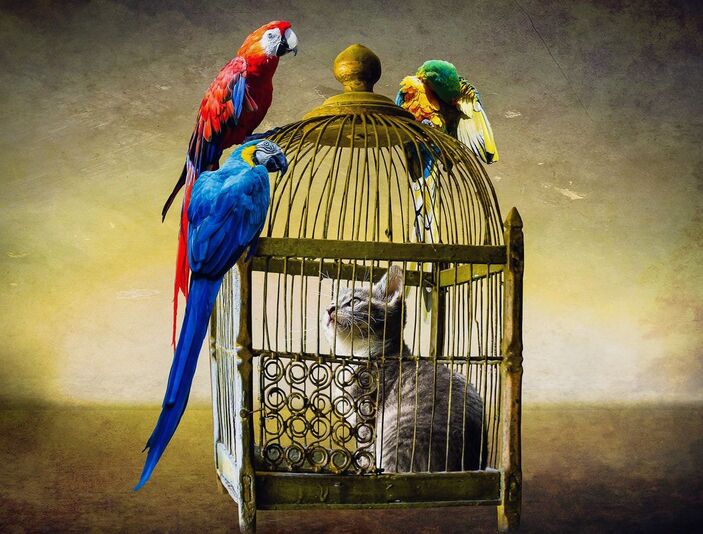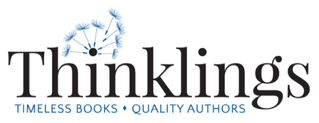|
This post, below the Read More button, originally appeared in Katherine Vick's blog. It perfectly fits the values of Thinklings and the reason we got started. (No, we didn't put her up to writing it. :)
The entertainment industry—all areas of it—really does need people willing to take risks on the stories that are less "mainstream," so that more original content can be enjoyed by all, more voices can be heard, and our collective cache of creative works can expand and flourish. If you agree, spread the word about Thinklings and support us in our mission to give "different" quality books a chance!
0 Comments
UPDATE: The Writers' Collective is currently unavailable, but this article still provides interesting information about how Thinklings got started and about our values, skills, and experience.
Thinklings Books was originally started as a writing group. We three founders knew that writing, especially in the day of social media disconnect, was a lonely career. In addition to the solitude, writers (unlike companies with many—or even a few—employees) don’t have other people’s skills and strengths to fall back on when our own don’t suffice. One of my least favorite things about myself—which I’m working to fix—is that I get overwhelmed easily. I look at all the tasks I’ve been assigned, take in the big picture, and freak out. My brain says, “You must do ALL of this NOW.” I know that isn’t true, but that doesn’t stop the visceral reaction.
Jeannie here. This post first appeared in my literary consultant blog, but I've changed it up a bit. I feel like this topic is pretty evergreen around New Year's.
I always got a slew of new clients at the beginning of the year. And it seems like Thinklings Books has gotten quite a few queries from authors too. Whether I am here at Thinklings or working on my own, it's far too many to work with; and besides, I know better by now than to expect most of them to follow through. Back when I was just consulting by myself, I told some of my personal clients to try my query boot-camp classes in February. Usually there were three major groups: self-important narcissists, impatient eager beavers, and dropouts. I mostly want to talk about the last group. We answered the question "What is speculative fiction?" pretty quickly, but another question that seems to be coming up often is: "What kind of publisher is Thinklings?" We haven’t actually put a name to the type of publisher we are because there isn’t anyone else out there like us. But, since people like to be able to name things, and often use the established systems to do so, people often call us “indie” or “small press.” Thankfully, no one has confused us with the predatory vanity presses, which are publishers who have ads on TV (or elsewhere) trolling for unsuspecting writers. Everyone knows we aren’t traditional, so that must leave one of the other two: indie or small press.
But...we’re not either of those. Thinklings completely understands why big publishers want authors with platforms. The world is a noisy place, and getting your voice heard is a challenging endeavor. From my experience helping dozens of writers develop their platforms, I know how tricky it can be. And how time-consuming. It’s much easier, and cheaper, to find people with existing platforms than to advertise them through the marketing department. Even if a publisher finds a book they are in love with, they may not publish it if the author has no presence online.
So what is a writer supposed to do? Put aside her writing time to work on publicity? Not sleep? Give up leisure? Stop spending time with his family? Fortunately, Thinklings has come up with a solution. We call it “Platform in a Box.” Yesterday I started talking about how we at Thinklings do things a little differently in regard to how we get our income. Today I’m going to go over how we keep our expenses lower and how we cut down the normally expensive aspect of publishing.
Thinklings is not a normal publisher . . . in so many ways. But we do have some common restraints and complaints that the big publishers also have. Primarily regarding profit. Publishers don’t turn large profits. Never have. Anyone who wants to go into publishing to become wealthy has another think coming.
Sarah here. I was just watching American Ninja Warrior (ANW) and marveling at the dedication of those athletes, how they’ve trained for hours upon hours upon hours to get where they are. And then, since my brain is always churning with metaphors and comparisons, I started thinking about the differences between sporting competitions and the publishing industry. The observations I made were quite staggering.
Jeannie here. This post first appeared in my literary consultant blog.
You might have grown up thinking that there are about fifty genres of books, but really, there are three. We’ll call the rest of the genres, like sci-fi and mystery, sub-genres. So what are the three types? Well, there's 1) fiction (duh); 2) nonfiction (also, duh); and 3) creative nonfiction (uh, what's this?). |
Archives
July 2024
Categories
All
|
As an Amazon Associate, we earn from qualifying purchases.










 RSS Feed
RSS Feed
